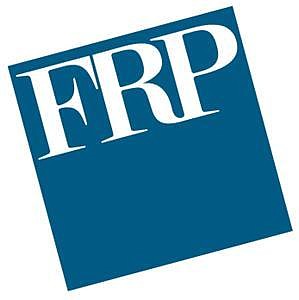
Like many other companies that already had reported fourth-quarter results, FRP Holdings Inc. last week said the new federal tax law had a big impact on its earnings.
However, unlike the other companies that recorded one-time benefits or costs, the new law will have a long-term impact on FRP.
With the sharp drop in the corporate federal income tax rate, the Jacksonville-based real estate developer decided not to convert to a real estate investment trust, or REIT.
“The new tax code mitigates many of the reasons why we considered a REIT election,” FRP said in a news release.
A REIT structure allows real estate companies to avoid taxes by paying out most of their profits to shareholders as dividends.
Meanwhile, FRP reported fourth-quarter earnings of $13.2 million, or $1.31 a share, but that included a one-time tax benefit related to the new law of $12 million, or $1.20 a share.
Of more significance, FRP’s revenue jumped 30.9 percent to $12.5 million, largely because of a joint venture that opened a riverfront apartment building in Washington, D.C.
That building was 96.7 percent leased at the end of the year, and FRP said it received approvals to begin Phase II of that project.
In addition to continued development of that Washington property, FRP said its mining royalties division received approvals for two quarries that will bring in more revenue.
FRP originally was formed as a spinoff from Florida Rock Industries Inc., and it owns properties that are leased to construction materials companies for mining.
In FRP’s conference call with investors last week, CEO John Baker said the new projects provide a strong outlook for the company.
“2017 was a game changer for FRP Holdings,” he said.
“We are very bullish about our markets.”
Another real estate developer, The St. Joe Co., also benefited from the tax law in the fourth quarter.
St. Joe, which formerly was headquartered in Jacksonville, reported fourth-quarter earnings of $38.5 million, or 58 cents a share, which included a one-time tax-related credit of $33.5 million.
St. Joe’s earnings also included a $9.8 million net gain from the sale of its short-term vacation rental management business.
Aside from those special items, St. Joe’s revenue rose 15 percent in the quarter to $21.5 million.
St. Joe, now headquartered in WaterSound, develops properties mainly in the Florida Panhandle.
Two struggling mortgage banking companies that had big Jacksonville operations five years ago are planning a merger.
West Palm Beach-based Ocwen Financial Corp. agreed to buy PHH Corp. for $360 million in cash.
New Jersey-based PHH employed more than 1,000 people in Jacksonville five years ago before it began downsizing, finally selling most of its remaining Jacksonville operation to LenderLive Network LLC last year.
Ocwen acquired Homeward Residential Inc. in late 2012 and then closed Homeward’s Jacksonville office in 2013. It filed a Worker Adjustment and Retraining Notification Act notice saying it would cut 370 Jacksonville jobs with the office closing.
The merger announcement came as both companies reported continued losses for 2017. Ocwen said its net loss was $128.5 million last year after a $199.4 million loss in 2016. PHH lost $202 million in 2016 and $217 million in 2017.
The companies are hoping the merger will create efficiencies that will improve the finances of the companies.
“We are pleased to have reached an agreement with Ocwen for the sale of our company. This decision follows a comprehensive assessment of the risks and opportunities associated with operating the business and the strategic alternatives available to us. The board and management believe the sale of the company to Ocwen represents the best opportunity to maximize shareholder value,” PHH Chief Executive Robert Crowl said in a news release.
Ocwen’s purchase price of $11 per PHH share is a 24 percent premium over PHH’s market price of $8.84 before news of the deal surfaced.
Regency Centers Corp. last week said President and Chief Financial Officer Lisa Palmer is nominated for election to the board of directors at the company’s annual meeting next month.
The Jacksonville-based shopping center developer also nominated Deirdre Evens, chief of operations for information management company Iron Mountain Inc.
Regency said the nominations are part of an ongoing “refreshment” plan for its board of directors, which includes enhanced diversity.
Palmer and Evens would replace Chaim Katzman, who resigned from the board last month, and Raymond Bank, who decided not to seek re-election.
D.A. Davidson analyst Steven Chercover said Jacksonville-based Rayonier Advanced Materials Inc. made a positive impression during investor meetings his firm hosted in New York.
Chercover said in a research note that Rayonier AM is “reintroducing itself” after its November acquisition of Tembec Inc. that more than doubles its annual revenue.
“The purchase of Tembec changed Rayonier from a pure play cellulose specialty company to a more dominant CS producer with exposure to several commodity grades,” he said.
“A successful integration of Tembec is clearly job one, but capital allocation and telling the story are also critical to driving shareholder value in the months and years ahead. We liked what we saw in the early chapter of the new story.”
Chercover maintains a “buy” rating on the stock.
“For the near term, Rayonier AM’s significant free cash flow will be focused on debt reduction, but we believe opportunities to drive value through low risk investment and return of excess capital are significant,” he said.
St. Augustine-based Creative Learning Corp. last week reported a net loss of $105,654, or 1 cent a share, for the first quarter ended Dec. 31.
Revenue fell 19 percent to $596,837.
Creative Learning offers educational and enrichment programs for children through franchisees.
The company said revenue fell because of a reduction in new franchise sales and a drop in active franchisees, from 746 a year earlier to 651 as of Dec. 31.